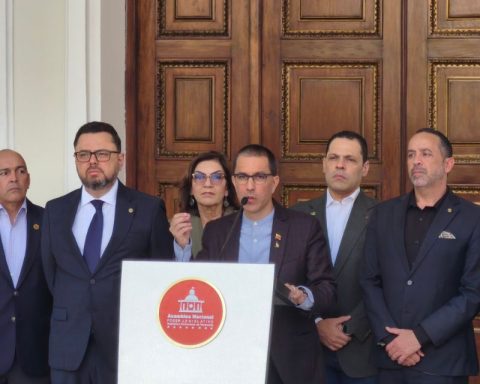The great technologies of our time cannot help us manage the climate crisis facing the planet because they are designed with a very different objective: to manage us during the climate crisis, argues Marta Peirano.
The author of the book “Against the future. Citizen resistance against climate feudalism”, edited by Debate. She exposes that leaders of technological multinationals have proposed escapist solutions such as going to populate Mars or living in bubbles in the stratosphere. Solutions where existence depends one hundred percent on technology.
However, he warns that in the face of this rhetoric of preferring a disruptive solution, hundreds of thousands of small citizen solutions can be the way out, but that implies taking responsibility for what happens in our environment. The key is organization, from the neighborhoods to regain control over the use of common resources.
If technology once saved the world from the deluge, why couldn’t technology save us from global warming today?
I start the book talking about the oldest company that we have been telling ourselves since the beginning of human times, which is the story of a meteorological disaster and the technologies that save us.
What happens is that when you think about the technology that saves us, the first thing you see is that this technology saves only one family.
What I am saying is that 99% of the population must not die for the species to be perpetuated and that this metaphor of salvation at the last minute has been particularly beneficial for a generation of billionaires who are now leading the technology industry.
One of the things that I tell in the book is that they offer us a series of quite escapist solutions. For example, Elon Musk He proposes that we flee to Mars because the earth begins to break and the future of humanity is interstellar.
While, Jeff Bezos considers that Mars is nonsense, because at no time does anyone explain how we do to survive the radiation that would kill us the microsecond of setting foot on Mars and what he proposes are large structures a bit like bubble castles, suspended in the stratosphere, where the weather is wonderful, the waves are always perfect, the food is always delicious and nothing makes you fat.
It proposes ultra-rich communities that for me the force of that metaphor is separate from the people they exploit. They are like Noah’s arks where humanity continues to live but to keep the arks afloat and it is a perfect solution for someone like Jeff Bezos because it means an existence 100% dependent on technology.
Right now we can breathe without the help of Jeff Bezos, but if we go to his bubbles suspended in the stratosphere, even breathing becomes a technologically assisted activity.
And then Mark Zuckerberg proposes a metaverse that is reality when you’re not in Jeff Bezos’s super-rich bubbles or working in Elon Musk’s mines on Mars, which is reality for most of us living on a planet every increasingly hostile in increasingly smaller spaces, breathing increasingly less breathable air, in increasingly higher temperatures in summer and lower in winter, but since we wear glasses and we can inhabit a world where we can work dressed as a robot, well everything is much easier.
To reach the situation in which we have the planet, what has been the role of companies, governments and society, both organized and society in general and what should be their role to get out of that situation?
The role of companies in recent years has been to maximize profits, through an indiscriminate exploitation of resources, which are common, and which, moreover, are finite, and the role of governments has been to allow it and at the same time make an increasingly privatized development of the critical infrastructures that characterize an action State, such as the existence of critical infrastructures that guarantee the survival of its citizens.
American or Chinese multinationals increasingly occupy more privileged spaces in our nation states and increasingly make more important decisions, which in a democracy is a problem, because no one has elected them democratically.
What is climatic feudalism alluded to in the subtitle of this book?
For me, climate feudalism is a strategy of the large multinationals that consists of proposing, like platform capitalism, free services to install software in our lives and extract the maximum amount of data possible for the exploitation of that data and the mass manipulation to buy things or vote for certain political options. It is a strategy that offers preventive technological solutions to the climate crisis in exchange for receiving public money to take over critical infrastructure.
They are companies that do not contribute to the general welfare, however, they are extracting public resources of many kinds.
Is it a matter of tidying up how you’re developing technology or how it’s being managed?
It is a problem of sovereignty. The big technology companies have convinced us that there is only one appropriate, effective and productive way of doing things and that is how they do it.
They say they are right, the truth; that they have the best artificial intelligence, that they have the best infrastructure, the brightest minds working to get us on the train of progress, but in reality, all these companies are depleting resources, polluting the environment, exploiting, often illegally, the data and the most private information of users and, in addition, they use it for things that do not benefit us, such as, for example, dark political campaigns, which convince people that they are in a reality that does not exist and that have polarized the population, in such a way that public debate has become an insoluble problem. In addition, they are the great vehicles of disinformation of our time.
How is this civil army against climate change built?
There is a rhetoric of “and you more” that makes us feel unable to participate appropriately enough in the solution and that, along with many other things, infantilizes us as citizens with the political capacity to save ourselves.
So, there is this rhetoric of preferring a giant, totemic, disruptive solution that comes from a foreign company that solves it overnight.
(Given that proposal) Hundreds of thousands of small, local, incremental solutions adapted to the community in which you live and not to the global community, is the way out.
This book talks a lot about the need to once again take radical responsibility for what happens in our environment, about how much water our building consumes, about how energy is produced in our neighborhood and how we are going to manage moments of real climate crisis.
The key lies in the ability of the neighborhoods to organize themselves to regain control over the use of common resources, such as water, over their energy production, but, above all, because they generate community around objectives as crucial as the ability to have heating in winter and air conditioning in summer or having something to eat, is much more effective when it comes to generating political power to be able to activate the administration, to make the right decisions or legislation, so that it forces companies to behave in the properly. Local activism is the key that unlocks everything else.

















